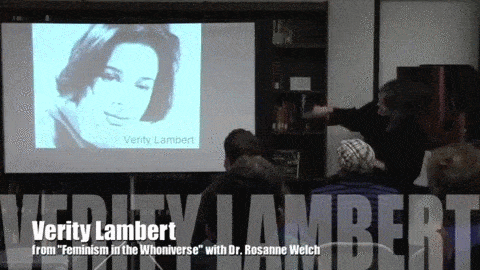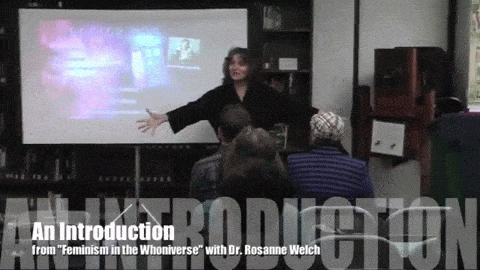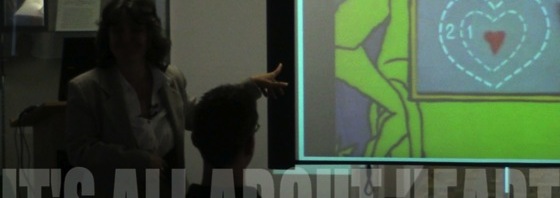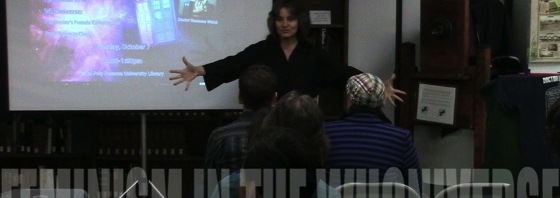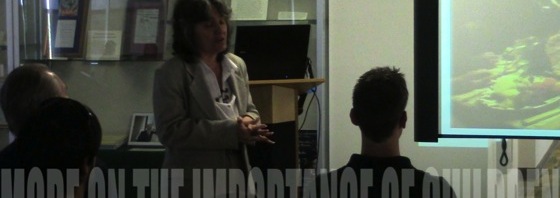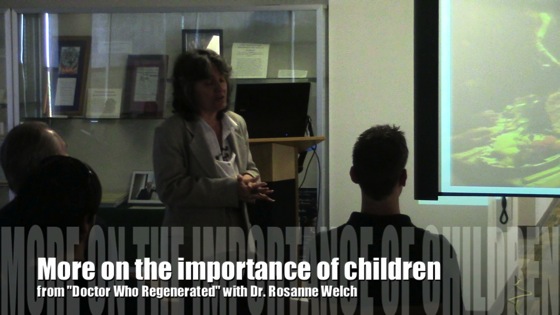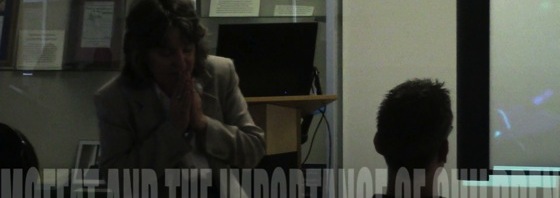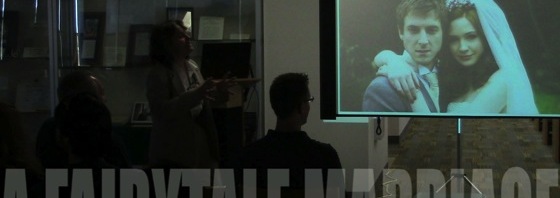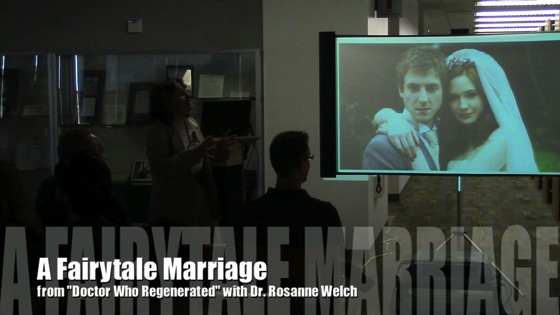A clip from this longer presentation – Doctor Who: Feminism in the Whoniverse with Dr. Rosanne Welch
Watch this entire presentation – Doctor Who: Feminism in the Whoniverse with Dr. Rosanne Welch
Dr. Rosanne Welch (https://rosannewelch.com) speaks on “Feminism in the Whoniverse” of Doctor Who, the BBC television program now in its 50th year. She reviews each of the Doctor’s female companions and speaks on how they are represented in the program and how they represented the women of their respective periods.
Transcript:
While she’s here starting Doctor Who we come to the very first companion, who is the original Doctor’s grand-daughter, Susan. Susan’s a very cool character. When they invented The Doctor and this traveling guy, they knew he would travel with people and, you know, you want balance — you want a guy and a girl — that’s just kind of, we like that look. It’s TV, they wanted a young, pretty-looking girl. So, now we’re going to have an old guy traveling though time and space with a pretty, young girl. We need to make sure that’s not some weird thing. So, she became his grand-daughter. This is part of the conversation. First, she was just going to be a partner and they went “Oh no, that won’t work. Right?” So she became his grand-daughter. Now, that’s nice because it humanizes the character. He has a grand-daughter.
Feminism in the Whoniverse was presented at the Cal Poly Pomona University Library where Dr. Welch teaches in the IGE (Interdisciplinary General Education) program.
This is the 4th talk on various aspects of Doctor Who that Dr. Welch has presented. You can find these talks using the links below.
- Doctor Who and Culture
- Doctor Who Regenerated
- “How the Growing Popularity of the English Who-niverse Effected American TV” with Dr. Rosanne Welch
Subscribe to Dr. Welch’s YouTube Channel
Podcast: Play in new window | Download
Subscribe: RSS

